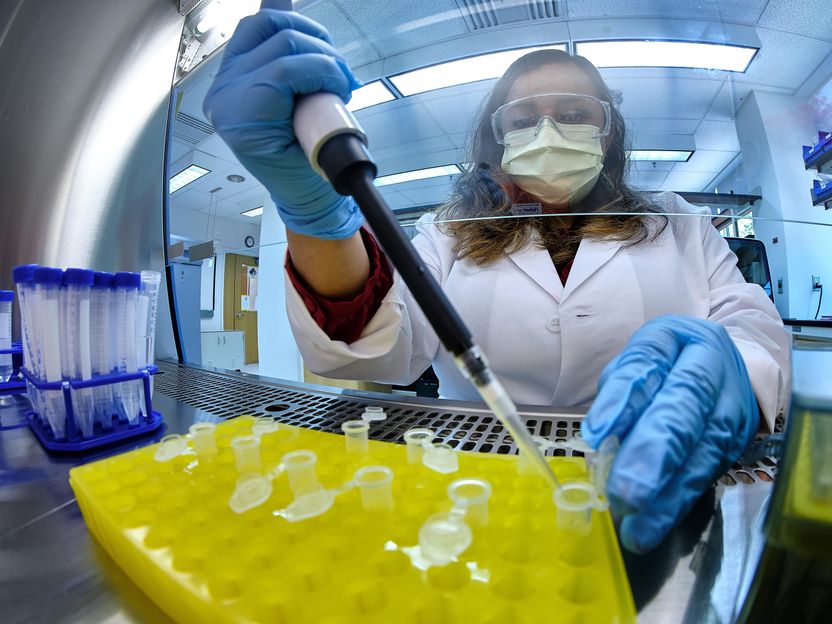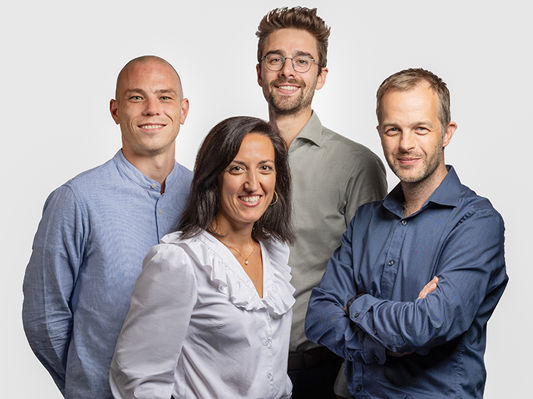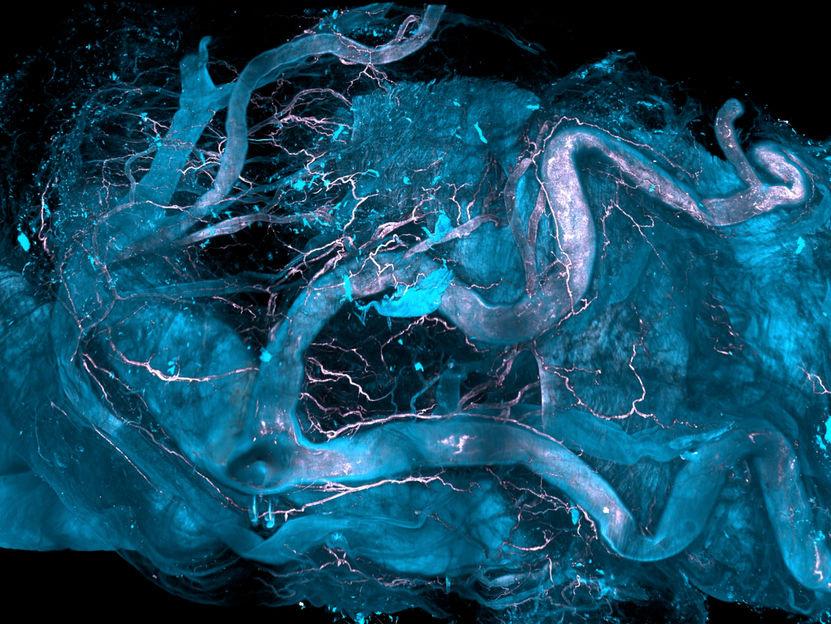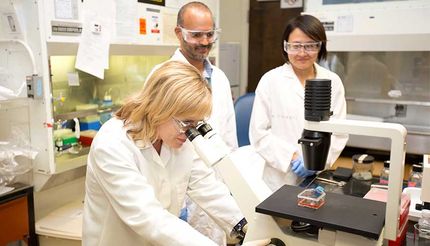Abbott and Enanta Present Positive 12-Week Results and 3-Day Resistance Data From Phase 2 Study of ABT-450/r for Treatment of Hepatitis C
Abbott and Enanta Pharmaceuticals announced 12-week results from a Phase 2 study of ABT-450/r, an investigational, oral protease inhibitor being developed for the treatment of hepatitis C (HCV) infection. Study results show that 92 percent (22 of 24) of patients taking ABT-450/r once daily, combined with standard of care, achieved complete early virologic response (HCV RNA levels <25 IU/mL) at 12 weeks. Results were presented at the European Association for the Study of Liver Disease (EASL) annual meeting in Berlin.
Key findings:
- At week 12, 92 percent of patients receiving ABT-450/r (ABT-450 with 100 mg of ritonavir to support once-daily dosing) in combination with standard of care (SOC) – pegylated interferon alpha and ribavirin (pegIFN/RBV) – achieved HCV RNA <25 IU/mL
- In a separate analysis of 3-day resistance data, ABT-450/r dosed at 200/100 mg appeared to more consistently suppress the emergence of ABT-450-associated resistant variants than the 50/100 mg and 100/100 mg doses
- Previously presented 3-day and 4-week results from the study had suggested the ABT-450/r demonstrated significant antiviral activity in treatment-naive adults
- After three days, treatment with ABT-450/r alone resulted in 4-log (10,000-fold) mean reductions of HCV RNA, across the three dose ranges of ABT-450 (50 mg, 100 mg, 200 mg, once-daily dosing)
"A significant number of HCV patients are unable to begin treatment with peginterferon and ribavirin, and for those that do begin treatment, more than 50 percent will not be cured," said Fred Poordad, M.D., chief of hepatology at the Liver Disease and Transplant Center at Cedars-Sinai Medical Center in Los Angeles, and one of the investigators for the study. "These results suggest that ABT-450/r could be an important component in combination therapy approaches to treating HCV."
The objectives of the 48-week Phase 2 study are to assess the safety, tolerability, pharmacokinetics, and antiviral activity of multiple dose strengths of ABT-450/r in treatment-naive adults infected with HCV genotype 1, which is the most common and difficult to treat form of the infection in the developed world. Trial endpoints include early virologic response and rapid virologic response. Initial antiviral activity was evaluated via a 3-day treatment period during which ABT-450/r was administered alone. Subsequently, ABT-450/r was administered with pegIFN/RBV (SOC) for 12 weeks, followed by treatment with SOC alone for an additional 36 weeks. Participants are then monitored post therapy for 24 weeks for sustained virologic response.
Most read news
Other news from the department research and development

Get the life science industry in your inbox
By submitting this form you agree that LUMITOS AG will send you the newsletter(s) selected above by email. Your data will not be passed on to third parties. Your data will be stored and processed in accordance with our data protection regulations. LUMITOS may contact you by email for the purpose of advertising or market and opinion surveys. You can revoke your consent at any time without giving reasons to LUMITOS AG, Ernst-Augustin-Str. 2, 12489 Berlin, Germany or by e-mail at revoke@lumitos.com with effect for the future. In addition, each email contains a link to unsubscribe from the corresponding newsletter.
Most read news
More news from our other portals
Last viewed contents

Analytica 2022: Fighting COVID-19 with combined expertise - New tools in virus research and detection

Obulytix is developing a revolutionary solution for antibiotic resistance - Spin-off has built a platform that creates new ways to tackle bacterial infections
Sarcospan, a little protein for a big problem
Ribosome
Blood_alcohol_content
UCB announces Phase 3 clinical trial program for epratuzumab in Systemic Lupus Erythematosus did not meet primary endpoint

Novel spatial-omics technology enables investigation of diseases at their early stages - How can you trace a single diseased cell in an intact brain or a human heart?
A long day for microbes, and the rise of oxygen on Earth






















































